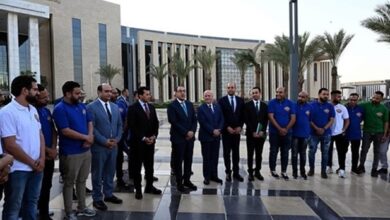This year, the holy month of Ramadan began with the forceful eviction of martyrs’ families and supporting activists from Tahrir Square by the military, after a three-week sit-in that began on 8 July.
As Ramadan enters its second week, many protesters remain wedged between the collective customs of family, love and forgiveness, and the ongoing demands for justice and political clarity that have been sweeping the nation for the last six months.
Though the majority of public protests have been provisionally eased due to the ongoing trials taking place, those personally affected by the convictions of those on trial remain unfazed by proceedings.
“How were we supposed to go home from Tahrir to celebrate Ramadan for the first time with an empty seat at the table?” says Mostafa Hassan Ramadan, the older brother of Mahmoud Hassan Ramadan, who was shot and killed in Tahrir during the uprising. “Every night we look at that seat with tears. So while we have been forced to return home, forgiveness is out of the question and is in fact becoming less of an option every time we eat with that empty seat.”
Several family members say that returning back to their homes was not appealing because of threats from various forces to silence their demands. Staying in Tahrir, they say, allowed their safety to remain in the public sphere rather than being isolated at home.
“We were worried that [the Supreme Council of the Armed Forces (SCAF)] was pushing us to go home so that we could be more secretly accessible and attacked,” says Ehab Sawy, who lost his younger brother during the uprising. “It was a very unpleasant situation to be in.”
Three days into Ramadan, Egyptians saw former President Hosni Mubarak, his sons and former Interior Minister Habib al-Adly standing trial in a cage, broadcast on television for all the world to see. The proceedings will continue in separate trials next week.
The aesthetically arresting portrayal of such previously unassailable authorities standing helpless in convicts’ clothes garnered much sympathy from local viewers, but activists say such antics are purposefully exploiting the attitudes of people that come to the forefront during Ramadan.
“[The SCAF is] exploiting people’s sensitivities and how people remain distracted by family and feelings of forgiveness throughout the month in order to commit atrocities like 1 August and the Tahrir iftar,” says Nour Nour, a human rights activist.
Some activists told Al-Masry Al-Youm that by holding the trials during Ramadan is strategic, as families watching will be more forgiving to the accused. Others, though, maintain that Ramadan will not and should not affect the revolutionary spirit in the slightest.
“We’ve been beaten and humiliated in the past and have already invested so much in this revolution,” says Shahira Abouellail, an activist who works with the No Military Trials group. “Just because they’ve been clobbering us and trying to manipulate the majority of the population doesn’t mean that our feelings have changed.”
Nour Nour also explains that revolutionary spirit and Ramadan spirit are actually two branches of the same tree, despite many people’s attitudes.
“Trying to improve your surroundings and communal values by going down and defending people’s rights is definitely supposed to be a crucial part of the Ramadan spirit,” he adds.
“Sadly, public opinion is dominated by the family aspect, but many family members are still undergoing military trials as we speak that are not getting any attention because everyone is too focused on the soap operas and other distractions.”
Though sit-ins and public protests have been reduced to a minimum, either through forceful events or a desire to return home to family for the month, activists suggest that Ramadan has worked in their favor by allowing them the opportunity to meet and discuss more methodical approaches to achieving future demands.
“Certainly all groups have calmed down a bit because your routine is broken, but we’re strategizing more now due to the excess time available,” says Abouellail.
“Though protests and sit-ins should always be on the table, because they’re a human right, we are realizing more and more that we need to establish ourselves as strategic lobbyist groups.”
One manifestation of this is the current efforts by activists during Ramadan to establish programs on Tahrir Radio, intended to act as platforms for an unadulterated “voice of the revolution.”
“Even though many TV programs have been set up to act as voices of the revolution, the [producers] still have to answer to somebody, and that will – even if the presenters have good intentions – keep them under government control, which is not in sync with the revolution’s goals,” Abouellail says.
Family members of people killed in the revolution say Ramadan has allowed them time to reflect and strengthen their ideas about achieving justice.
“Up until Ramadan, all of my expressions of dissent took place in Tahrir, where my brother died, which gave it a very personalized and subjective quality,” says Mostafa Hassan Ramadan. “Now I have had the time to reflect, read and pray more, which has allowed me to develop my objectivity so that I can convey my messages and thoughts in a more effective manner.”
However, although activists say a continued sit-in at the end of Ramadan is unlikely, many align themselves with the interests of martyrs’ families, who insist that a return to Tahrir is in order if justice is not carried out sufficiently as the month progresses.
“If this was a personal matter or offense from a friend, then of course forgiveness would be the norm,” says Sawy. “But my brother is dead, and there is really very little that anyone can do to make me and my family forget that – Ramadan or not."
He goes on: “We’re willing to die for his justice, so if the proceedings and events taking place this month feel fraudulent, there will be a reaction, and we will go straight back down to Tahrir.”




